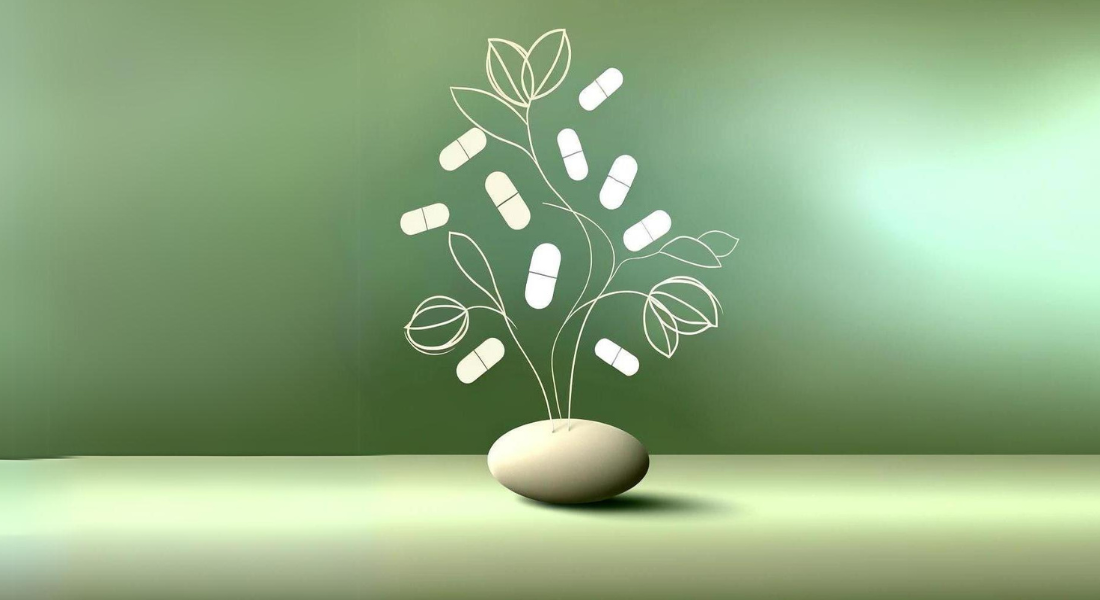Waste products could innovate pharmaceutical material design
Research highlights the potential for utilizing molecules extracted from side stream products in food and oil industry in the context of pharmaceutical innovation, showcasing the power of interdisciplinary research in addressing global challenges.

Researchers from across the Faculty of Health and Medical Sciences are visionary advocates for sustainable change in pharmaceutical industry. Achieving this vision, however, requires more than just scientific know-how. It requires innovation and forward thinking to counter the challenges that comes with working in field of complex global industries.
Luckily it does not hold back our excellent researchers, and one of them is specifically pioneering new methods in material sciences to address challenges in drug delivery, holding the potential to transform parts of the drug development and production industry.
Professor Vito Foderà, Department of Pharmacy, is in fact trying to turn waste into wonder.
“In producing the materials that deliver drugs into biological systems, we often rely on complex procedures. Depending on the components, those procedures can have adverse environmental impacts and pose potential toxicity risks at different steps in the lifetime of the product. What we are doing is developing new materials according to green principles, both regarding the building blocks as well as the material processing. We specifically use protein isolated from side stream products of industry, e.g. soybeans, potatoes and milk, to create biocompatible materials for drug delivery while using water as the sole solvent,” he says.
In doing so, the research puts up two green solutions to one problem. And the concept is clever and straightforward: first, it repurposes waste proteins to create materials capable of delivering therapeutic agents effectively. And secondly it processes them via water as a solvent, utilizing green chemistry principles.
“By adopting a minimalistic approach and utilizing water as a solvent, we are not only reducing environmental impact during processing, but also sidestepping potential toxicity issues associated with discarding the material after use,” explains Vito Foderà.
Applies to nicotine replacement drugs
One of the key scientific challenges Vito Foderà and his team are facing is the poor solubility of some proteins in water. In order to solve this problem, they developed new protocols to enhance solubility while maintaining the sustainability of their approach. This, combined to the use of a processing technique called electrospinning, allowed the production of sustainable materials in the form of protein patches.
His team's recent successes include demonstrating the efficacy of their sustainable materials in nicotine replacement therapies.
“For people who want to stop smoking, effective products need to be able to fast-releasing nicotine and with the correct dose and that's exactly what our system allows” he says.
They also have proof of concept with the delivery of antibiotics, he explains.
“We have a proof-of-concept study where we build the material out of milk proteins and then incorporate the antibiotic inside this material, maintaining its functionality.”
From visionary advocacy to tangible innovation, the journey toward sustainability in pharmaceuticals continues. A huge step to overcome is implementation, as there are big challenges in terms of the infrastructure needed to actually make a shift towards using such solutions.
It requires a united, global effort to establish a full-functioning framework for waste protein collection and processing on a larger scale, and we need not just researchers, but also policymakers and the industries themselves.
Meanwhile, the immediate future for Vito Foderà’s research is creating tailored delivery solutions for specific diseases, and in doing so transforming the current theoretical findings to applied approaches.
Contact
Professor Vito Foderà
+45 35 33 61 31
vito.fodera@sund.ku.dk
